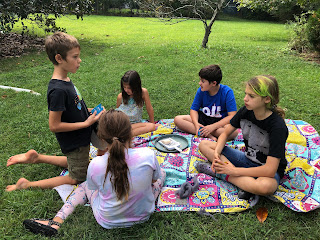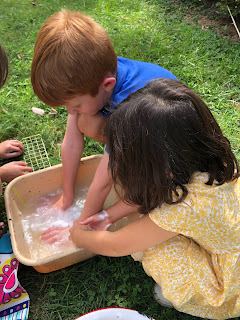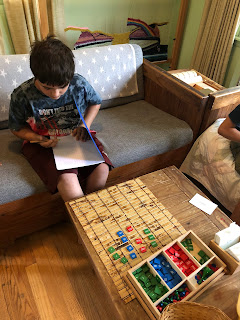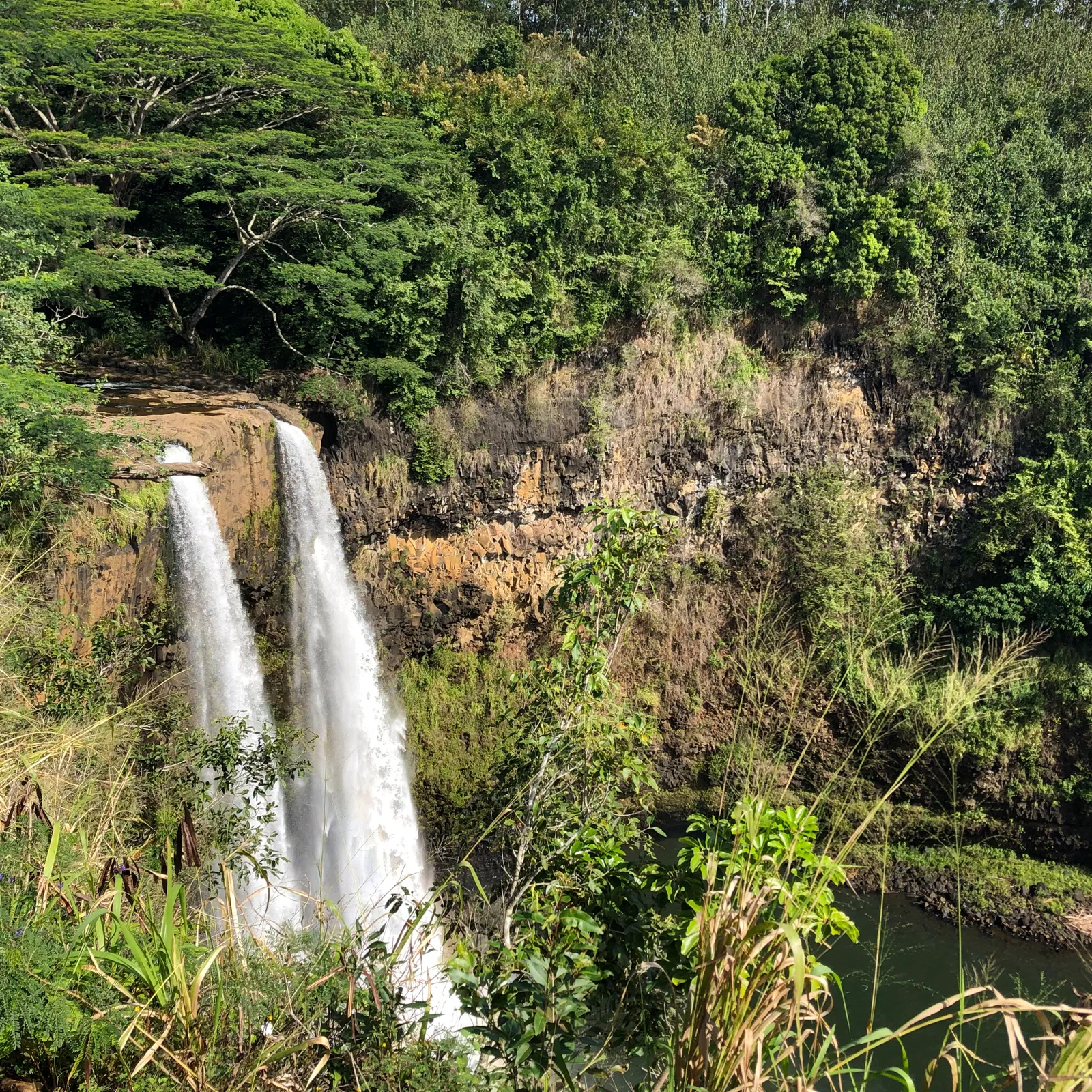Form Drawing in Waldorf education is also sometimes referred to as Freehand Geometric Drawing. Children practice drawing precise combinations of straight lines and curves in preparation for writing their letters and numbers correctly. FD continues through grade 4, with the forms growing progressively more complex, and in grade 5 it becomes Geometry proper.
Cordage is not a traditional Waldorf subject but I have chosen it as part of the Practical Life curriculum -- farming, gardening, fibers & clothing, housebuilding, measurement, etc. -- that would be done in grade 3 (age 9). At this age, learning REAL LIFE skills is the most important theme.
In FD this week the younger children worked on the diagonal line and practiced combining diagonal lines to make zigzags. We explored cracks in eggs, acorns, and geodes. In Cordage the older children continued their study of wool. They continued carding the wool they washed in week one, did wet felting, and practiced spinning wool into yarn using a drop spindle.
We continued to read The Burgess Book of Nature Lore by Thornton W. Burgess at lunchtime. Our snacktime picture books this week were
The Golden Egg Book by Margaret Wise Brown (wet felted eggs, FD: zigzags), The Little Yellow Leaf by Carin Berger (FD: the path of a leaf as it falls), and Extra Yarn by Mac Barnett (winding a ball of yarn, FD: spirals).






Here are some photos from our week:
the children come in to find our last monarch butterfly has eclosed!
while we are outside, waiting for the butterfly to take its first flight, the children help pull a massive quantity of vines off the burning bush
the children tackle this job with great gusto
we collect a lot of grapevine and honeysuckle to use in our cordage experiments!
they carefully sort it into two piles
younger children, who can fit into my monarch butterfly costume, take turns wearing it as part of our monarch celebration!
this costume is very special as my mother made it for my younger brother almost 40 years ago
this student is in charge of keeping the gardening gloves organized
she carefully clips matching gloves together using clothespins
it's a beautiful day so we choose to do our wet felted eggs outside as well
each child chooses a different color of wool roving so that we know whose egg is whose
they carefully wrap their egg with an even covering of wool fiber, like it has a sweater
to felt the wool, they first take turns grating some soap and then add the shavings to a bowl of hot water
gradually get the egg wet, then rub it firmly until the wool felts
yes, we use raw eggs for this
that way the children learn not to be too rough!
when you're done, you wash the soap bubbles off your egg and set it to dry
our form for today is the zigzag crack of the baby bird getting out of its shell
during Independent Work Time, the older children begin to get lessons on the Montessori materials for Math and Language Arts
each child plans the day that is right for them
at the end of the day, we write down all the things that everyone has done!
the staircase is a nice quiet spot for reading
Stamp Game
after we read
The Little Yellow Leaf by Carin Berger, I drop a leaf so we can see for ourselves how it travels through the air
then the children draw its path as a Form on their personal chalkboards
we also drop an acorn and compare how the two of them fall
the acorn falls straight down; the leaf twists and turns and floats as it goes
Cylinder Block
Ms. Abby comes as a special guest on Tuesday and we get to snack on acorns!!!
we can grind these ready-to-go acorns to make acorn flour and cook with it
she also leaves us with some raw acorns that we can process ourselves
cutting the raw egg out of its felt covering
the children get to keep the felt piece that they made
the first knitting project is always the kitten
children first make their own knitting needles and then wind their ball of white yarn
early Wednesday morning, I prepare four balls of "magic" yarn to go with our picture book for today
I choose Lion Brand Homespun yarn because it matches the illustration in the book so well (this is 396 Fiesta but
407 Painted Desert would also work)
the children do not know that inside the ball of yarn they'll use to practice winding a ball of yarn, I have tucked a nature treasure!
each of the youngest children goes home with a geode, an old wool sock, and instructions for how to crack it
checking out our pile of vines from Monday
is there any usable fiber?
yes! they collect a LOT of fiber from the honeysuckle vines!
next week we will begin to make cordage with it
using the drop spindle to make wool yarn
choosing a color of wool felt for the Pony Reins
starting a Finger Knitted Snake
carding our clean washed wool
This post contains affiliate links to materials I truly use for homeschooling. Qualifying purchases provide me with revenue. Thank you for your support!

















































 Immersive Experience
Immersive Experience Immersive Experience
Immersive Experience






No comments:
Post a Comment